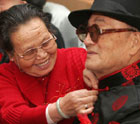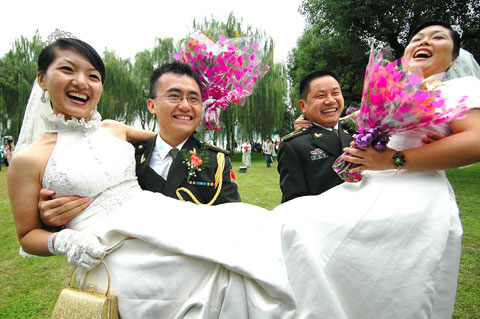More non-Communist and non-politically affiliated people will assume senior positions in central and local governments, a senior official has promised.
"The central authorities will make proper appointment arrangements for non-Communist friends who meet the requirements of government positions so as to make the best use of their expertise," said Chen Xiqing, deputy head of the United Front Work Department (UFWD) of the Central Committee of the Communist Party of China (CPC) in an online interview.
The united front work, led by the CPC, refers to efforts to pool resources of different sectors for national construction.
Since the 16th CPC national congress in 2002, non-Communists had made great progress in participating in state affairs, Chen said.
More than 177,000 non-Communist members sat in legislatures, including seven vice-chairpersons of the Standing Committee of the National People's Congress, the top legislature, and 50 standing committee members.
Forty-one non-Communist officials served as vice directors of provincial legislatures and 462 as standing committee members.
The country had more than 337,000 non-Communist political advisors, including 13 vice-chairpersons of the National Committee of the Chinese People's Political Consultative Conference and 195 standing committee members, Chen said.
More than 31,000 non-Communists were officials above county level, 27 provincial-level regions had non-Communist vice-governors and about 90 percent of cities and counties had non-Communist vice directors, he said.
More non-Communist people were expected to become leaders of state-level or local governments as the system of multi-party cooperation and political consultation under the leadership of the Communist Party of China improved.
Chen said the most prominent examples were Wan Gang, Minister of Science and Technology, and Chen Zhu, Minister of Health, who were the first group of non-Communist cabinet appointments since the 1970s when China launched its economic reform and opening up drive.
Chen said his department was building a human resources reserve of members of the "new social stratum", mostly high-income professionals such as lawyers, doctors or company heads, which already comprised more than 200 people.











